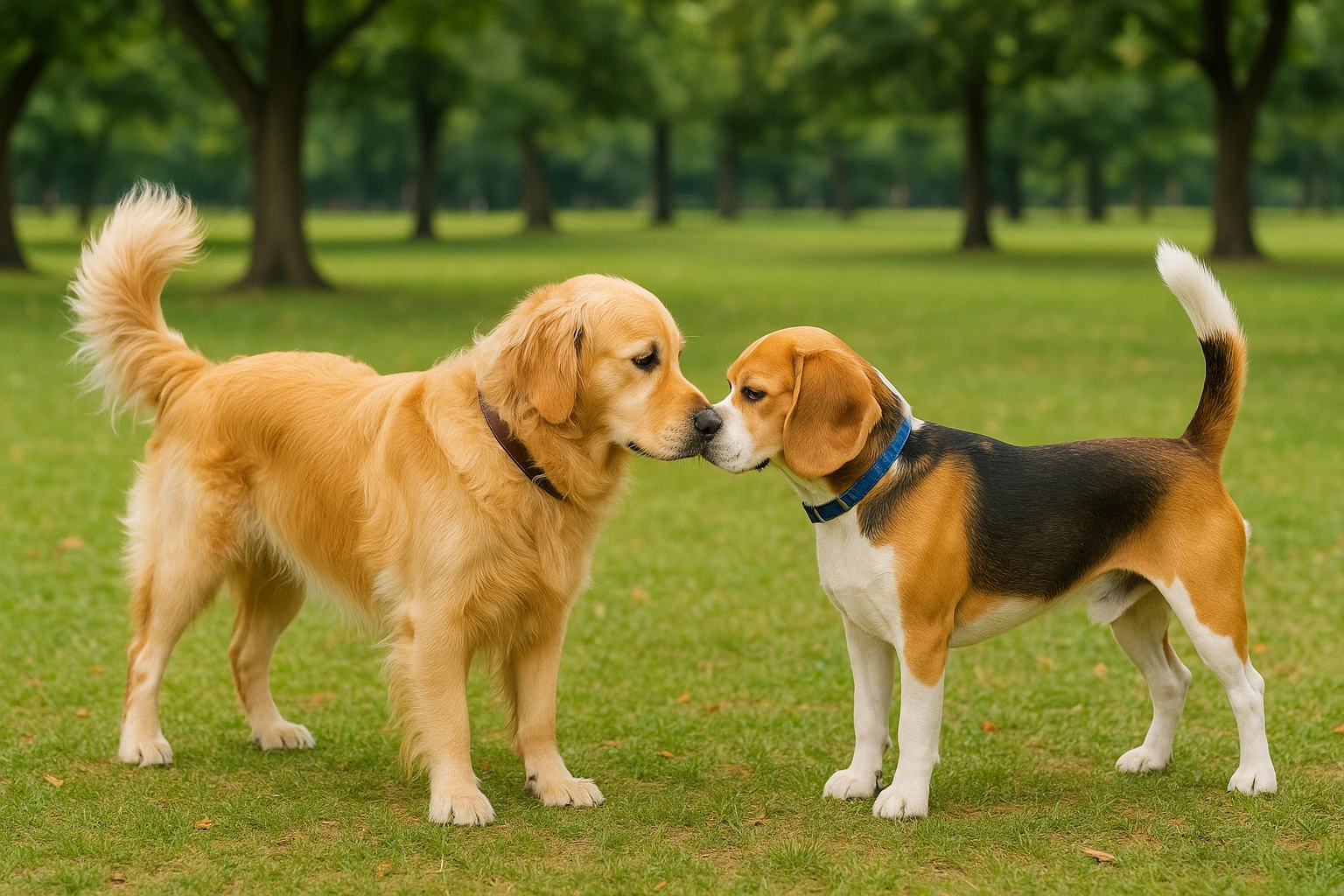How Dogs Pick Friends: 3 Sniff Signals
Why Dogs Click
Every dog owner has seen it: that moment on a walk when two dogs lock eyes, approach each other slowly, and start the age-old ritual of sniffing. Sometimes, after a few curious seconds, they part ways. Other times, something magical happens: they begin to bounce, chase, wrestle, and play like old friends. What makes the difference?
If you've watched your dog meet other dogs, you may have noticed: not every greeting becomes a friendship. Some dogs play instantly, while others move on quickly. Just like people, dogs seem to form deeper bonds with those who share something in common, perhaps something we'd call personality.

Three Sniff Signals That Spark Friendship
- Curved approach: A loose body and curved path reduce tension and invite play. Stiff, head-on approaches can feel confrontational.
- Soft, reciprocal sniffing: Brief, back-and-forth sniffing with easy pauses suggests mutual consent and comfort.
- Play invitations: Play bows, bouncy movement, and self-handicapping (going lower, slower) signal safe, cooperative intent.
My dog Tuffy has met hundreds of dogs—at parks, cafés, and during long layovers in foreign cities. Some interactions are brief; others awkward. But when those three signals line up, the play usually flows and both dogs finish with that open-mouthed, loose-bodied grin.
As a pet parent, I wondered: is it random, or is there a pattern to the dogs Tuffy truly bonds with?
Personality Compatibility Matters
Here at Dogality Test, we believe that every dog has a unique personality: a combination of traits like curiosity, energy, independence, and sociability. These traits shape not only how dogs interact with humans, but also with other dogs.
Just like people with similar temperaments often gravitate toward each other, dogs with compatible personalities may be more likely to become friends. A confident explorer may bond with another energetic go-getter, while a calm, gentle pup might feel more at ease with a laid-back companion.
This theory isn't just anecdotal. Animal behaviorists often observe that successful dog-dog relationships depend on mutual body language, communication styles, and social thresholds. All of which are reflections of personality.
Want to explore the 16 personality types we've observed in dogs? See all Dogality Types and find which one fits your pup.
Compatibility Beyond the Sniff
Dogs don't choose friends based on breed or size. What really seems to matter is play style, energy level, and communication. A confident dog might enjoy rough-and-tumble play, while a more sensitive pup may prefer gentle interaction. When two dogs align in how they play and signal, it's like watching a friendship spark in real time.
Why This Matters for You and Your Dog
Understanding your dog's personality can help you create better social experiences for them. Whether you're heading to the park, considering a second dog, or planning a playdate, knowing your dog's social style makes a difference.
Want to better understand your dog's unique personality type? Try our 🚀 Free Dog Personality Test to learn how your pup navigates the world.
Further reading: balanced, practical takes on dog-to-dog socialization from AKC and RSPCA.
FAQ
How do dogs choose canine friends?
By aligning on play style, energy, and clear body
language. Look for curved approaches, soft sniffing, and play bows.
Is size or breed the main factor?
No. Compatibility and communication matter far more
than size or breed.
How can I set up a great first playdate?
Start with a parallel walk on neutral
ground, keep leashes loose, add sniff breaks, and end on a high note.